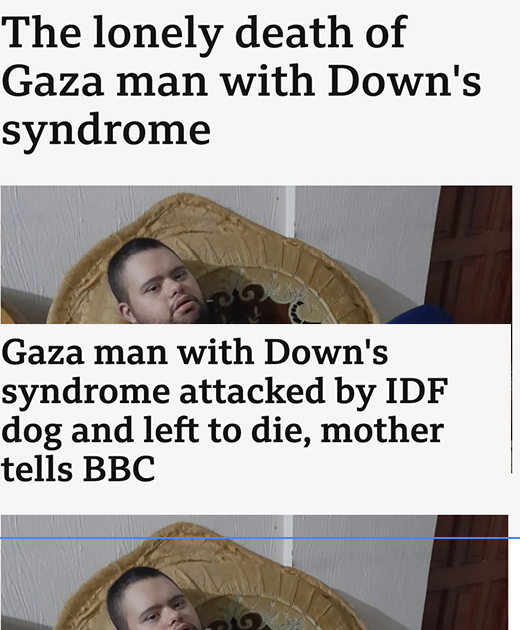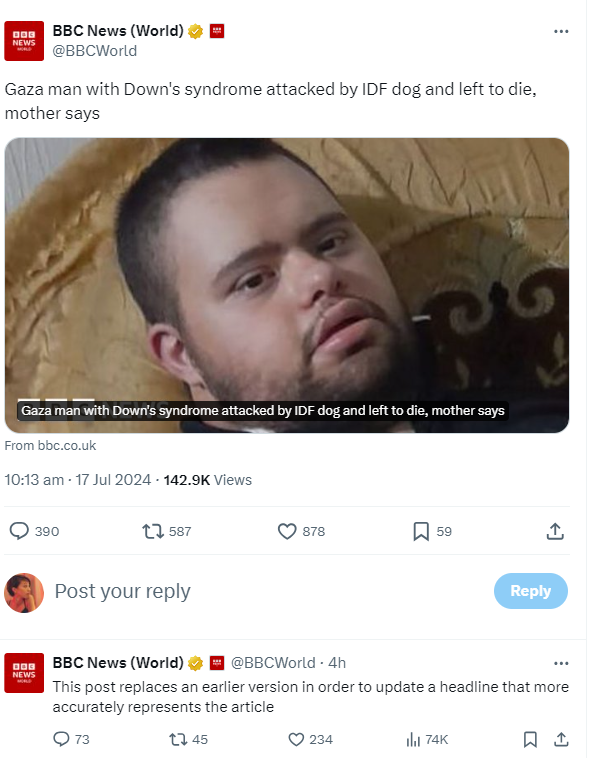BBC headline criticised after Palestinian with Down’s syndrome attacked by IDF
Some readers may find the details below distressing.
The BBC was heavily criticised for its leading headline that tells the tragic death of a 24 year old Palestinian man who suffered from Down’s syndrome and autism.
Muhammed Bhar relied on family to help him eat, drink and change his clothes. His mother, Nabila Bhar, told the BBC that the IDF was advancing into Sejaiya. After evacuating “around 15 times” since the war began, Nabila, 70, had grown weary of moving and stayed put.
“We were under siege for seven days. The tanks and soldiers were all around the house… Muhammed was staying on his sofa…and he didn’t like sitting anywhere except for there,” she told the BBC.
According to the family, on 3 July the IDF raided their home on Nazaz Street. Nabila recounts that there were several dozen soldiers accompanied by a combat dog, which is used to locate Hamas fighters and check for booby traps and explosives.
The dog attacked him, biting his chest and then his hand. Muhammed didn’t speak, only muttering ‘No, no, no.’ The dog bit his arm and the blood was shed. I wanted to get to him but I couldn’t. No-one could get to him, and he was patting the dog’s head saying, ‘enough my dear enough.’ In the end, he relaxed his hand, and the dog started tearing at him while he was bleeding.
According to Nabila, the soldiers eventually took Muhammed into a separate room, saying, “We will bring a military doctor to treat him”. Held at gunpoint, the rest of the family were told to leave after several hours. Two of Muhammed’s brothers were arrested, and have still not been released.
The family returned a week later to find Muhammed’s body on the floor, his arm clotted but wrapped in a tourniquet, wounds covered in loosely bandaged gauze.
They were trying to stop the bleeding. Then they left him without stitches or care. Just these basic first aid measures. Of course, as you can see, Muhammed was dead for a period of time already because he was abandoned. We thought he wasn’t at home. But it turned out he had been bleeding and left alone at home all this time. Of course, the army left him.
The article, published by the BBC on 16 July, ran the following headline:
The lonely death of Gaza man with Down’s syndrome

The public response was one of outrage, and the BBC was forced to rewrite its headline – but not until the next day.

The original headline (above), and the one it was changed to (below)

This isn’t the first time the BBC has been criticised for its coverage of Palestinian casualties since the Gaza-Israel war began. But the particularly distressing events of this deeply personal account further fueled questions around the reliability and bias of a core part of British media.
















